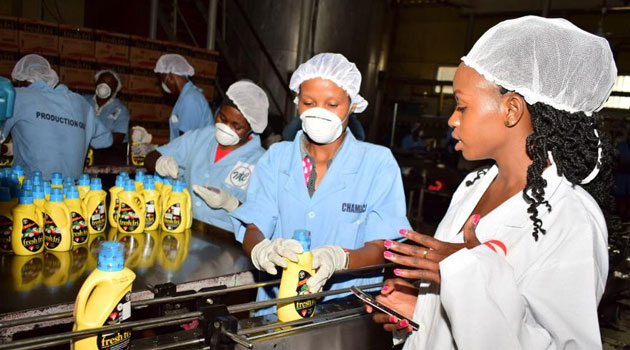Pwani Oil has announced that it is shutting down its oil plant. This follows a shortage of dollars in the market which has left the company unable to pay its suppliers.
Pwani Oil, which manufactures Freshfri, Salit and Fry Mate cooking oils said that as of last week, bankers were only processing half of the dollar orders it requires to pay the suppliers of crude palm oil imports from Malaysia amid stiff global competition.
“Getting sufficient amount of dollars required to support the factory in terms of getting sufficient raw materials is not happening. We are not even running the plant right now because of lack of raw materials [crude palm oil],” Pwani Oil Commercial Director Rajul Malde said.
Sh. 300 million annual pay Oigara abandoned by quitting as KCB CEO
“We are competing for the same oil with the rest of the world and, therefore, prices are high. Added to that, we can’t pay on time so we don’t get priority in supply.”
Malde added that to run smoothly, Pwani Oil requires up to USD 2.5 million per day. It is however only able to get about USD 500,000.
“At the moment, based on the inflows from banks, we are only able to source between $500,000 and $1 million a day against a requirement of $2- $2.5 million a day. So we are only getting half of what we need, sometimes even less than half,” he said.
“Terms [of suppliers] are normally cash against documents. So when they ship a container out, they will send us copy of the documents and we need to pay to get those [original] documents to clear the cargo. Now that’s where the challenge is because if there isn’t enough dollars available, how do you pay and get the documents to clear?”
The shut down comes barely days after Central Bank of Kenya Governor Patric Njoroge said that manufacturers in Kenya were not being truthful about the dollar situation.
Last week, the Kenya Association of Manufacturers had announced that its members were facing acute dollar shortages, and those who were still able to access dollars were buying them at highs of above Sh. 120 in contrast to the CBK’s stated price of Sh. 116 per US dollar.
“Although the formally quoted exchange rate for the US dollar in the market is hovering around Sh. 115-116, none of our members can access currency at that price in the market. The real market price is now above Sh. 120,” KAM chairman Mucai Kunyiha said in a statement.
KAM added that the ongoing shortage has resulted in importers hoarding dollars or refusing to sell at the stated prices.
“Exporters and other entities holding US dollars are reluctant to sell at lower prices as it is clear and visible to them what the market value of the currency is. From the foregoing, it would appear that the market is losing confidence in the transparency and effectiveness of our foreign exchange market,” Kunyiha said.









